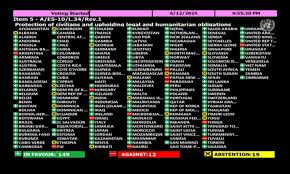
Introduction
Eswatini, formerly known as Swaziland, is a small, landlocked monarchy in Southern Africa. This nation, known for its rich cultural heritage and unique traditions, has recently been in the global spotlight due to its socio-political changes and economic challenges. Understanding Eswatini’s historical context, current events, and cultural significance is crucial as it emphasizes the dynamics within the region and the impacts of globalization.
Current Events
Recent events in Eswatini have drawn international attention, particularly the pro-democracy protests that erupted in 2021. Citizens have been advocating for democratic reforms, seeking to replace the long-standing absolute monarchy system with a parliamentary democracy. After weeks of protests, the government responded with a mixture of dialogue and crackdowns. Despite heavy police presence and the arrest of various activists, the movement continues to gain momentum.
In addition to political unrest, Eswatini has been grappling with socioeconomic challenges, exacerbated by the COVID-19 pandemic. The nation, heavily reliant on agriculture and the garment industry, has faced economic downturns, leading to increased unemployment rates and food insecurity. International aid and investments have become paramount for Eswatini’s recovery strategy.
Cultural Significance
Eswatini is distinct in terms of its cultural practices, with most of the population being ethnic Swazi. Traditional ceremonies, such as the Umhlanga Reed Dance and the Incwala Festival, are celebrated annually, attracting numerous visitors who seek to experience the vibrant local customs. These events not only exhibit Swazi culture but also play a role in instilling national pride among the youth.
The arts, music, and crafts of Eswatini also reflect the rich heritage of the Swazi people. Notable crafts include handmade beadwork, weaving, and pottery, which contribute to the local economy. Moreover, traditional music and dance not only entertain but also tell stories of history and identity, making them an essential aspect of communal life.
Conclusion
In conclusion, Eswatini is a nation at a crossroads, balancing the need for cultural preservation with the pressing demand for political reform and economic stability. As the country continues to navigate its path forward, attention from the international community remains critical. For individuals interested in global development, human rights, or cultural studies, Eswatini presents an essential case study in understanding the complexities facing small nations in the 21st century. Eswatini’s rich traditions, alongside its pursuit of democracy and social transformation, are likely to shape its future significantly.



